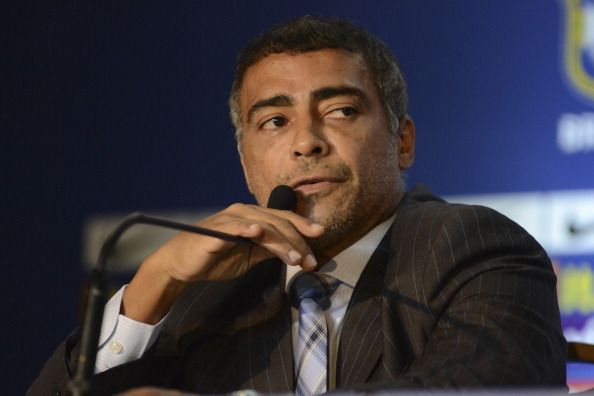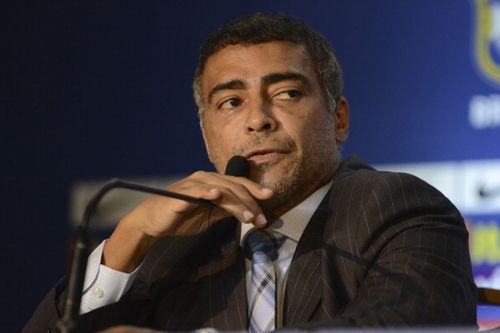
Why the world should watch out for Romario: the politician

World Cup winner Romario is now a politician. (Getty Images)
In the case of any high profile footballer, after his playing days are over, we as fans look anxiously towards him for any signs of his escapism. But not all stories of filmic relaxation are the same.
As Brazil gets ready to host one of the most prestigious tournaments in the sport’s history, little do we hear of controversies surrounding the project? Well, everyone is predominantly focusing on the issues surrounding the World Cup in Qatar, which is less than a decade away.
But the solitary bloke fighting the bureaucrats in the Brazilian parliament is the sturdy 47-yr-old World Cup winner, Romário de Souza Faria; the man who had scored 1,000 goals in 20-years of top-flight football.
The thought of being a politician never came to him, as he dazzled us with his unique abilities. The only reason he decided to be one was when his sixth child, Ivy was born with Down’s Syndrome as he explained it to Tim Franks of BBC.
“When I stopped being a football player, it’s true that politics didn’t even enter my head,” Romario conceded. “Then eight years ago my daughter was born with Down’s Syndrome.
“I started spending time with parents, relatives and friends of people who have some kind of disability. I began to realize there was no-one to represent these people in politics, so I decided to stand for election.”
Two years into his career as a socialist, he is partly credited for the demise of Ricardo Terra Teixeira - the President of Brazilian Football Confederation (CBF). It even led to him feuding with one of Brazil’s footballing legends – Pele – over how the CBF had been run.
“I am 45 years old now, I know many things. The thing about sorrow is stupid. What I say about Ricardo Teixeira is about what I see. I do not get anything from the CBF. Maybe Pele does, maybe that is why he is making those comments.”
– Spanish football site, sports.terra.com
After repeatedly questioning Teixeira’s motives from the initial bidding to the country winning it to the operations surrounding the event, Romario along with the ex-President’s critics eventually succeeded in getting rid of a corrupt official who was heading the Brazilian FC, though it’s reported that he might have voluntarily given up the position due to health reasons.
It does not stop there though; his eyes are now set on taking out the man who had replaced Teixeira.
This new script involves Jose Maria Marin, an ex-vice-governor of Sao Paulo from 1979 to 1982 during the time Brazil was under military dictatorship, who praised the officials during the time for the job they did against those who denounced the dictatorship.
Only time will tell us as we get closer to the World Cup, how things would fare out and that Marin does not actually ruin the sport by demonstrating the need for justice.
Yet it is instinctively understood that if Romario manages to keep his head high in his attempt to do good, he could be successful in politics, just as he was as a footballer.